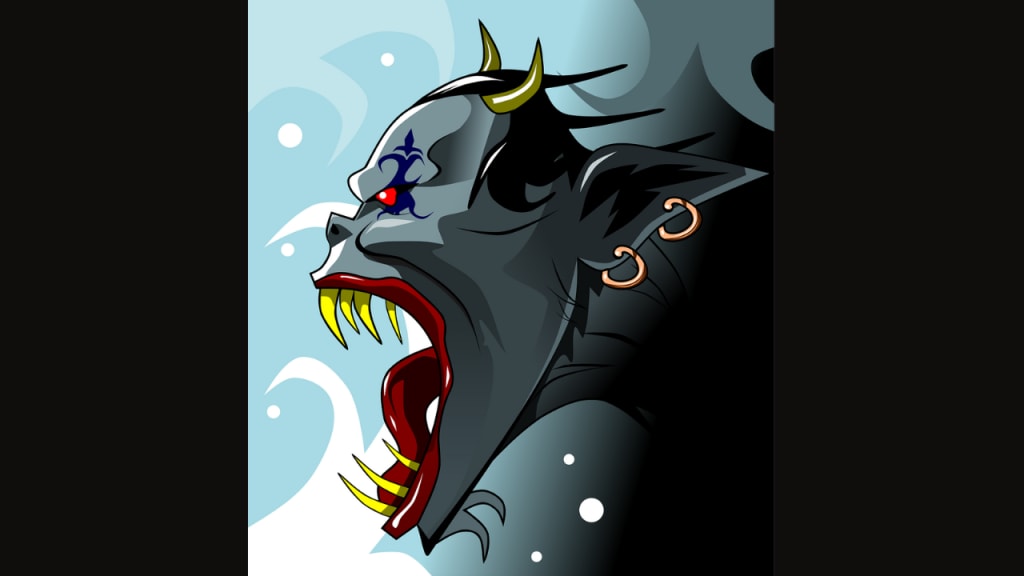The Truth About Demons: Unveiling the Mysteries
do demons exist? if yes, where do they live?

Demons have captivated the human imagination for centuries, permeating cultures and religions with their dark and enigmatic presence. These supernatural entities, often associated with malevolence and chaos, have intrigued, frightened, and bewildered people across the globe. But what is the truth about demons? Are they merely the stuff of myth and legend, or is there more to their existence than meets the eye?
To begin unraveling the mysteries of demons, it is crucial to recognize that perceptions of these entities vary widely across cultures. In many Western cultures, demons are often depicted as evil, malevolent creatures intent on causing harm to humanity. They are cast as the antithesis of angels, serving as instruments of evil in a cosmic battle between good and evil. This portrayal has deep roots in religious traditions, particularly in Christianity, where demons are seen as fallen angels who rebelled against God.
However, in other cultures, demons take on a more nuanced role. In Hinduism, for instance, demons, known as "asuras," are powerful beings with both positive and negative attributes. They represent the inherent duality of the universe, embodying both creative and destructive forces. This perspective challenges the Western notion of demons as purely malevolent entities and highlights the multifaceted nature of these supernatural beings.
Another facet of the truth about demons lies in their historical evolution. Demonic entities have undergone significant transformations throughout history, reflecting changes in societal beliefs and values. In ancient civilizations, demons were often personifications of natural forces or diseases, serving as explanations for the unexplainable. Over time, as religious ideologies evolved, demons took on new forms and meanings, becoming symbols of temptation, sin, and evil.
One intriguing aspect of the truth about demons is their psychological and cultural significance. Demons have played a crucial role in human psychology, representing our deepest fears and desires. Carl Jung, the famous Swiss psychiatrist, viewed demons as manifestations of the "shadow self" – the dark and suppressed aspects of our unconscious mind. In this sense, demons are not external entities but symbolic reflections of our inner struggles and conflicts.
Moreover, the concept of demonology has permeated literature, art, and popular culture, further shaping our understanding of these supernatural beings. From Dante's "Inferno" to modern horror films, demons continue to captivate our imagination and serve as metaphors for the human condition. They challenge us to confront our inner demons and grapple with the moral and ethical dilemmas they represent.
The truth about demons also intersects with the field of paranormal investigations. Many people claim to have encountered demons or experienced paranormal phenomena associated with them. These accounts range from possessions and exorcisms to sightings and ghostly encounters. While skeptics may dismiss such stories as mere superstition or delusion, others argue that there is more to these experiences than meets the eye. Some paranormal researchers believe that these encounters may be manifestations of repressed emotions, psychological distress, or even unexplained natural phenomena.
It is essential to acknowledge that belief in demons remains deeply rooted in many religious traditions. Exorcisms, rituals designed to expel demons from individuals, continue to be performed in various cultures and faiths. The Catholic Church, for instance, maintains a dedicated cadre of exorcists tasked with confronting demonic possession. While some view these practices as outdated and superstitious, others see them as a means of addressing spiritual and psychological distress.
In recent years, the concept of demons has also found its way into the realm of technology and artificial intelligence. Some experts have raised concerns about the potential dangers of creating intelligent machines that could be likened to modern-day demons. These concerns revolve around issues of control, ethics, and the potential for AI to act against human interests, echoing the age-old fears associated with supernatural demons.
In conclusion, the truth about demons is a complex and multifaceted phenomenon. While they have deep roots in religious and cultural traditions, demons also have symbolic and psychological significance. They challenge us to confront our inner struggles, fears, and desires, serving as mirrors to our own humanity. Whether seen as external malevolent entities or as symbolic representations of our inner demons, the concept of demons continues to captivate our imagination and raise profound questions about the nature of good and evil in the world. Ultimately, the truth about demons may forever remain elusive, existing in the realms of belief, mythology, and human psychology.





Comments
There are no comments for this story
Be the first to respond and start the conversation.